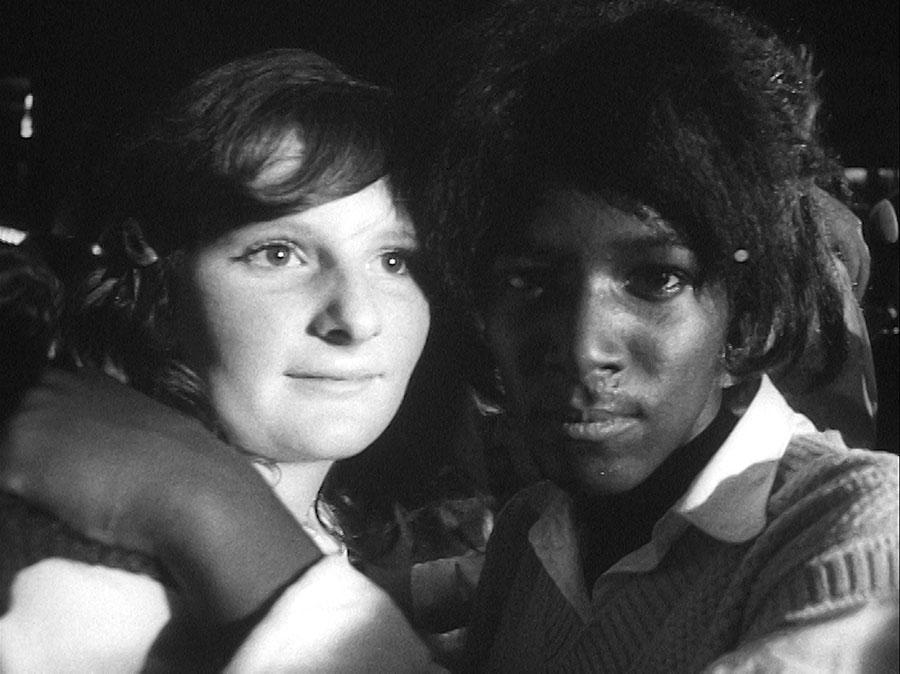Adam Curtis Cancels the Future
Curtis’s new BBC series, Can’t Get You Out of My Head, depicts the repetitive bleakness of individualism, but how can we collectively envision an alternative?
Curtis’s new BBC series, Can’t Get You Out of My Head, depicts the repetitive bleakness of individualism, but how can we collectively envision an alternative?

The primary thesis in Adam Curtis’s latest six-part BBC series, Can’t Get You Out of My Head (2021), seems to be that individualism has become an undemocratic force. Across eight hours, Curtis focuses on different revolutionary figures and those proximate to power, including Mao Zedong’s fourth wife, Jiang Qing, and Black Panther Party activist, Afeni Shakur. He explores psychology theory and the psyche of isolation that festers in the suburbs to create a dizzying picture of how we have arrived at such a narcissistic moment in time.
Curtis suggests that the future has been cancelled because political leaders no longer have ideas for what’s next. Instead, he argues, they run campaigns of perception management – a term originated by the US military to describe the manipulation and distribution of selected information into foreign countries. These control systems move us from states of hysteria and fear to apathy, indignance and then back again. A recent event like r/wallstreetbets – in which online Reddit traders challenged Wall Street elites at their rigged financial system – is an example of a shock that was momentarily all-consuming then almost forgotten in our minds. Soon, the next shitstorm arrives, and the cycle repeats, but the underlying power structures remain intact. Put another way: Curtis claims that society today simply reinforces itself, and everything reworks the past – not least the filmmaker himself.

As the series concluded, I felt discouraged by the sheer bleakness of it all. I had been hoping to be armed with a more empowering set of ideas about what to do next. Curtis, I think, would argue back that mobilization begins with seeing things for what they truly are. In John Carpenter’s cult film, They Live (1988), when the protagonist Nada (Spanish for ‘nothing’) puts on a pair of special sunglasses, he starts to see the unrestrained capitalism beneath the surface veneer. Watching Can’t Get You Out of My Head is like wearing Nada’s glasses; suddenly, you see horror everywhere. People appear so tightly wrapped up in their cocoons that they’ve overlooked the elite class of skull-faced aliens.
If individualistic mindsets are the fault-lines of individualism, how can we conceive of a new future? In her introduction to Verso’s 2016 reissue of Thomas More’s Utopia (1516), Ursula K. Le Guin writes: ‘The important thing is not to offer any specific hope of betterment but, by offering an imagined but persuasive alternative reality, to dislodge my mind, and so the reader’s mind, from the lazy, timorous habit of thinking that the way we live now is the only way people can live.’ In Curtis’s formulation, lazy thinking is propagated by an invader in the mind. Instead of corralling people with force or discipline, he suggests that today’s governing order operates more like an ideological straitjacket that renders all alternatives unthinkable. Mark Fisher’s ‘Acid Communism’ project – unfinished at the time of his death in 2017 – is the collective and constructive search for an alternative reality. He issues this active strategy: ‘Instead of seeking to overcome capital, we should focus on what capital must always obstruct: the collective capacity to produce, care and enjoy.’ For Fisher, like Le Guin, the practice of collective imagination can provide glimmers of a radically different world.

I am reminded of the words of José Esteban Muñoz’s in Cruising Utopia: The Then and There of Queer Futurity (2009), which were quoted in The Institute of Queer Ecology’s recent video series ‘Metamorphosis’ (2020): ‘We are not yet queer […] the future is queerness’s domain.’ Queerness, it seems, can also offer a way of envisioning societies that haven’t existed before. Modelled on the life cycle of holometabolous insects – bugs that undergo a complete metamorphosis – the three-part video series proposes a new ecological paradigm. It dreams of releasing us from the grip of extractive capitalism using imaginative tools like interspecies consciousness. By stretching our imagination in strange and less human dimensions, we might establish the trajectory towards a more caring, collective, joyful future.
Curtis positions the internet as a utopic vision that has mutated into a system of control. The current big news in culture tech is a gold rush for blockchain-based digital art or NFTs. The next generation of utopianists believe this technology is the gateway to a new cyberspace, defined by fairer systems and collectively owned institutions. Are we starting to glimpse societies that haven’t existed before or is the system metabolizing again? The Covid-19 pandemic is widening our field of view. Ideas like post-work or queer ecology don’t sound as far-fetched as they once might have, and episodes like r/wallstreetbets and the bull run in NFTs, however flawed, have the potential to help us see the world anew.

If Can’t Get You Out of My Head shows us how we have lost our capacity to envision new futures, then understanding this loss could have a powerful, purgative effect on our minds. I believe that the possibility of an alternative, new world lies in ideas of an expanded, collective and queer imagination. If you think about it, we already have all the tools that we need.
Adam Curtis’s Can’t Get Your Out of My Head is available to watch on BBC iPlayer.
Main image: Adam Curtis, Can’t Get You Out of My Head, 2021, film still. Courtesy: the artist and BBC






















